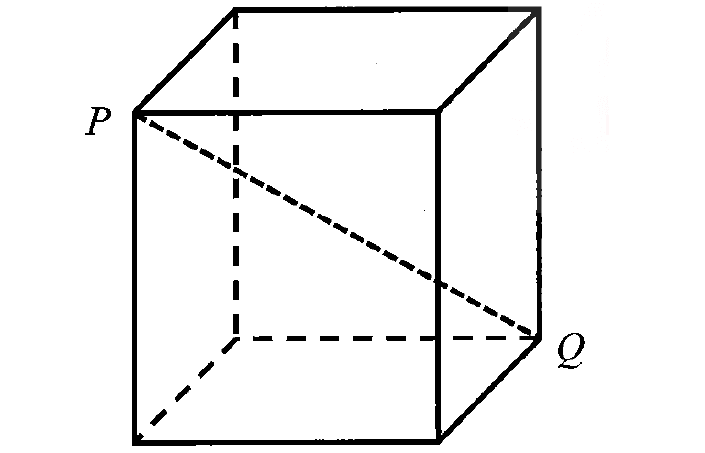FIND DERIVATIVES OF RADICAL FUNCTIONS
To find the derivative of a radical function, first write the radical sign as exponent and find derivative using chain rule.
Example :
f(x) = √x
f(x) = x1/2
Find derivative with respect to x.
f'(x) = (1/2)x1/2-1(x')
f'(x) = (1/2)x-1/2(1)
= (1/2)(1/x1/2)
= (1/2)(1/√x)
= 1/(2√x)
Base on the above example, we can derive formula for derivative of a radical function.
Let f(x) = √z. Then derivative f(x) :

Find the derivative of the following radical functions with respect to x :
Example 1 :
y = √(x + 2)
Solution :
y = √(x + 2)
y' = {1/[2√(x + 2)]}(x + 2)'
y' = {1/[2√(x + 2)]}(1)
y' = 1/[2√(x + 2)]
Example 2 :
y = √(2x - 1)
Solution :
y = √(2x - 2)
y' = {1/[2√(2x - 1)]}(2x - 1)'
y' = {1/[2√(2x - 1)]}(2)
y' = 1/√(2x - 1)
Example 3 :
y = √(3x2 + 5)
Solution :
y = √(3x2 + 5)
y' = {1/[2√(3x2 + 5)]}(3x2 + 5)'
y' = {1/[2√(3x2 + 5)]}(6x)
= 3x/√(3x2 + 5)
Example 4 :
y = √(2x4 + 2x - 1)
Solution :
y = √(2x4 + 2x - 1)
y' = {1/[2√(2x4 + 2x - 1)]}(2x4 + 2x - 1)'
y' = {1/[2√(2x4 + 2x - 1)]}(8x3 + 2)
= (4x3 + 1)/(√2x4 + 2x - 1)
Example 5 :
y = (x3 + 2x)√x
Solution :
y = (x3 + 2x)√x
Since two x terms are multiplied, we have to use the product rule to find the derivative.
|
Let u = x3 + 2x. u' = 3x2 + 2(1) = 3x2 + 2 |
Let v = √x. v' = 1/2√x |
Product rule :
(uv)' = uv' + u'v
y' = (x3 + 2x)(1/2√x) + (3x2 + 2)√x
= (x3/2√x + 2x/2√x) + 3x2√x + 2√x
= (1/2)x(3-1/2) + x(1 - 1/2) + 3x(2 + 1/2) + 2√x
= (1/2)x5/2 + x1/2 + 3x5/2 + 2√x
= [(1/2) + 3]x5/2 + √x + 2√x
= (7/2)x5/2 + 3√x
Example 6 :
y = (√x + 2x)/x2 - 1
Solution :
y = (√x + 2x)/x2 - 1
In the above function, we have variable x in both numerator and denominator.
So, we have to use the quotient rule to find the derivative
Quotient rule :
(u/v)' = (vu' - uv')/v2
|
Let u = √x + 2x. u' = 1/2√x + 2(1) = 1/2√x + 2 |
Let v = x2 - 1. v' = 2x - 0 = 2x |
= [(x2 - 1)(1/2√x + 2) - (√x + 2x) (2x)]/(x2 - 1)2
Kindly mail your feedback to v4formath@gmail.com
We always appreciate your feedback.
©All rights reserved. onlinemath4all.com
Recent Articles
-
Digital SAT Math Problems and Solutions (Part - 151)
Apr 26, 25 11:18 AM
Digital SAT Math Problems and Solutions (Part - 151) -
AP Calculus BC Problems with Solutions
Apr 26, 25 05:49 AM
AP Calculus BC Problems with Solutions -
Digital SAT Math Problems and Solutions (Part - 150)
Apr 25, 25 11:46 AM
Digital SAT Math Problems and Solutions (Part - 150)
